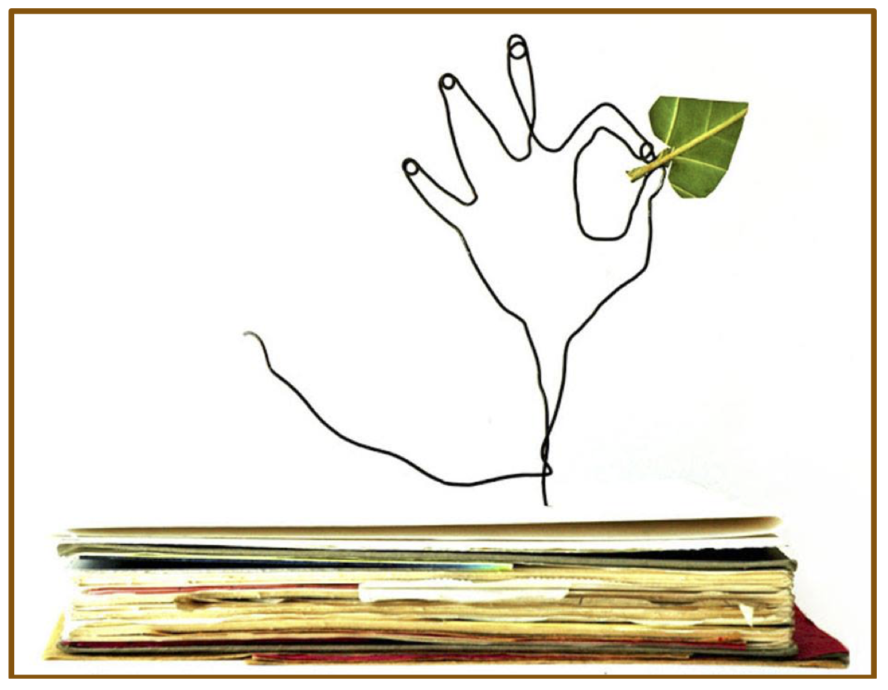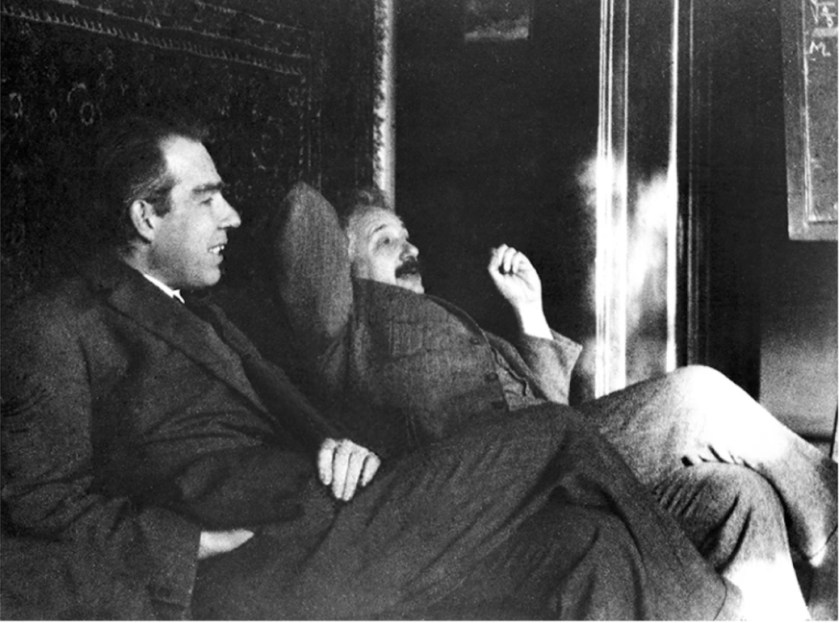
“Between the stimulus and response, there is a space and in that space lies our freedom and power to choose our response. In our response lies our growth .” – Viktor Frankl
Having survived the concentration camps during World War II, Viktor Frankl wrote his renowned book Man’s Search for Meaning in 1946. He asks the fundamental question “What is the meaning of life ?” The answer, he says, does not lie in theories on life or in meditative thoughts. The meaning is crafted by our conduct. When we ask what life expects from us rather than what we expect from life, we can have a better grasp of what we are doing in the universe and where we are going. Our choices become more cognizant and our conduct gains more precision.
Physics, exploring the same question as Frankl, is setting up experiments to solve the myth of creation and our existential dilemmas. On the limited nature of knowledge and the immensity of the universe, Einstein said to his colleague Niels Bohr : “ Alas ! Our theory is too poor for experience.” Bohr replied: “ No, no! Experience is too rich for theory.”

At the time he was working on his theory of General Relativity, the predeterministic approach to science was holding up. It was based on the assumption that the motion of atoms would occur only in predetermined orbits at the time and place specified for the experiment.
But Einstein thought different. He marked that such experimental control measures of movement and time are not complete. For he noted the measurement of one particle instantly affected the movement of another particle at a far distant location. Thus the experiment did not completely measure the spooky action at a distance, as he defined the phenomenon. He said that in order for a theory of physics to function, it has to take into account the whole truth of the matter being experimented. A century ago, he foresaw that one action here potentiates another action elsewhere which could not be measured instantaneously even if it were to be predetermined.
As for us humans living in the “physical” field between the two poles– freewill and predeterminism – what then would be the role of predetermined fate ? Frankl writes :
Freewill is used in the space between action and reaction, where and when the person makes a choice and acts accordingly.
Though the stage seemingly ends with the particular choice of action, it is preparing the potential choice of the next stage to come. Just like a game where each move gives way and determines the future moves. Thus the player affects and rewrites his fate at each chosen move, his line of action is determined. In this game, the mystifying questions are :
How is the software of choices are designed ? How is the quality of the game assessed ? Who keeps the score and ends the game ?
The renowned physicist Richard Feynman describes the game as such :
Imagine that the world is something like a great chess game being played by the gods, and we are observers of the game. We do not know what the rules of the game are; all we are allowed to do is to watch the playing. Of course, if we watch long enough, we may eventually catch on to a few rules. The rules of the game are what we call fundamental physics.
In the space where physics inevitably meets with metaphysics, the Sufi also have a word to say on freewill and destiny drawn by Divine Providence :
Whatever befalls us has its meaning though it is often hard to grasp. In the Book of Life every page has two sides. On the upper one, we inscribe our plans, dreams and hopes. The reverse is filled with providence, whose verdicts rarely match our desire. Who can read the handwriting of fate? What we cannot read in the beginning, we have to endure later. Our thoughts and desires project on to the future and if our estimated guesses do not happen to match the actual accounting, then we have to pay. We admire the rose and wish to possess it; but when we reach for it, the thorn pricks and when we withdraw our hand, it starts bleeding. We suffer from hunger, thirst and unfulfilled desires and we forget that their satisfaction will put our salvation in danger. When man’s desire and fate are in conflict, the best is not to revolt but to accept. Do not forget that what looks like vinegar, sometimes happens to be honey.
For the Sufi, the meaning of life is thus woven from one experience to next, with the warp of “divine providence” and the weft of our“ freewill.”
Einstein draws his distinct personal experience on “being before the moving beauty of the eternal ” :
Still there are moments when one feels free from one’s own identification with human limitations and inadequacies. At such moments, one imagines that one stands on some spot of a small planet, gazing in amazement at the cold yet profoundly moving beauty of the eternal, the unfathomable: life and death flow into one, and there is neither evolution nor destiny; only being.

Duygu Bruce







